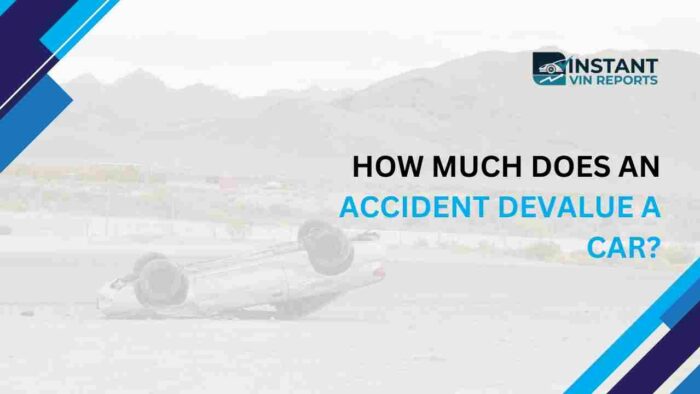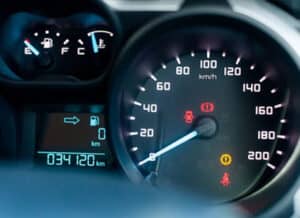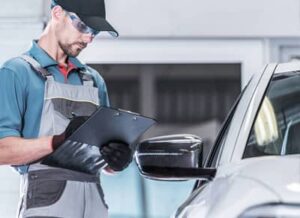If you’re considering buying or selling a car, it’s important to factor in whether it has been in an accident before. No matter how big or small, damages from an accident will affect its value in the used car market.
While not all accidents impact a car’s worth equally, any damage history will likely influence what buyers are willing to pay. Even if it has been repaired to a pristine condition, an accident record in its title or vehicle history report still reduces the price.
Let’s break down why accident history matters, how it impacts a car’s value, and what you should know to make informed decisions.
Why Accident History Matters for Car Value
When buyers assess a used car, they’re not just looking at its appearance or mileage—they’re evaluating its history. An accident can raise questions about the car’s safety, structural integrity, and potential for future mechanical issues. Even if the vehicle looks perfect on the surface, its history can still cast doubt.
Buyers tend to shy away from vehicles with accident records because of the risks involved. A car with prior damage may not perform as well as one with a clean history, even after repairs. This perceived risk makes buyers cautious, ultimately reducing the car’s market value.
Factors That Influence Depreciation After an Accident
Not all accidents are equal. Several factors determine how much an accident will devalue a car:
Severity of Damage
The extent of the damage is one of the most significant factors.
- Minor damage, like small dents or scratches, usually results in minimal depreciation.
- Moderate damage, such as a collision requiring panel replacements, can reduce value by 10–20%.
- Severe damage, especially if the vehicle requires structural repairs, can lead to a 30–50% drop in value.
Cars with severe damage may also carry the stigma of having a “salvage” or “rebuilt” title, which significantly limits resale opportunities.
Age and Condition of the Vehicle
The age of a car plays a critical role in how an accident affects its value. For newer cars, accidents are particularly damaging to resale value because buyers expect them to be in top condition. Older cars may be less affected, as buyers often anticipate some wear and tear.
Condition matters too. If a car has already experienced multiple issues or repairs, an additional accident can push its value even lower.
Quality and Completeness of Repairs
High-quality repairs can mitigate some of the depreciation caused by an accident. However, incomplete or poor-quality fixes, such as mismatched paint or lingering mechanical issues, will make buyers wary.
Even with perfect repairs, a vehicle’s CarFax or VIN history report will still show the accident, potentially deterring buyers who prefer vehicles without any damage history.
Estimated Depreciation Based on Accident Severity
Here’s a general idea of how much accidents can affect resale value:
- Minor accidents: Typically reduce value by 5–10%.
- Moderate accidents: Depreciation ranges from 10–20%, depending on the repairs.
- Severe accidents: Can cause a drop of 30–50%, especially for vehicles with structural damage.
These percentages vary based on the make, model, and market demand for the vehicle. Luxury cars, for instance, often experience greater depreciation after an accident due to higher buyer expectations.
How Accident History Affects Buyer Interest and Resale
A car with an accident history is harder to sell than one with a clean record. Buyers often negotiate aggressively or avoid purchasing altogether, even if the damage was repaired.
Many buyers assume that a vehicle with an accident history:
- Might have hidden mechanical problems.
- Could face safety concerns, especially if structural repairs were needed.
- Will be harder to resell in the future.
These concerns mean that sellers of accident-damaged cars must price their vehicles lower to attract buyers. This can make selling a car with a damage history a time-consuming process.
Verifying a Vehicle’s Accident History Before Buying
Before buying a used car, it’s critical to check its accident history. This not only reveals past damage but also helps you assess whether the vehicle is worth its asking price.
A VIN (Vehicle Identification Number) is your key to uncovering this information. Through a vehicle history report, you can quickly access a document that includes its accident records, repair details, and even photos in some cases.
Behind Every VIN Lies a Story—Find Out with Instant VIN Reports
When buying a used car, you don’t want any surprises. Instant VIN Reports simplify the process of verifying a car’s history. Their reports provide:
- Comprehensive accident report details.
- Insights into past repairs.
- A full window sticker for added context on the car’s original features and MSRP.
By using Instant VIN Reports, you can avoid costly mistakes and negotiate confidently. Whether you’re buying or selling, these reports are a valuable tool for making well-informed decisions.
An accident can significantly affect a car’s value, but the exact impact depends on several factors. While minor damage may result in slight depreciation, severe accidents can cut a vehicle’s worth by half.










